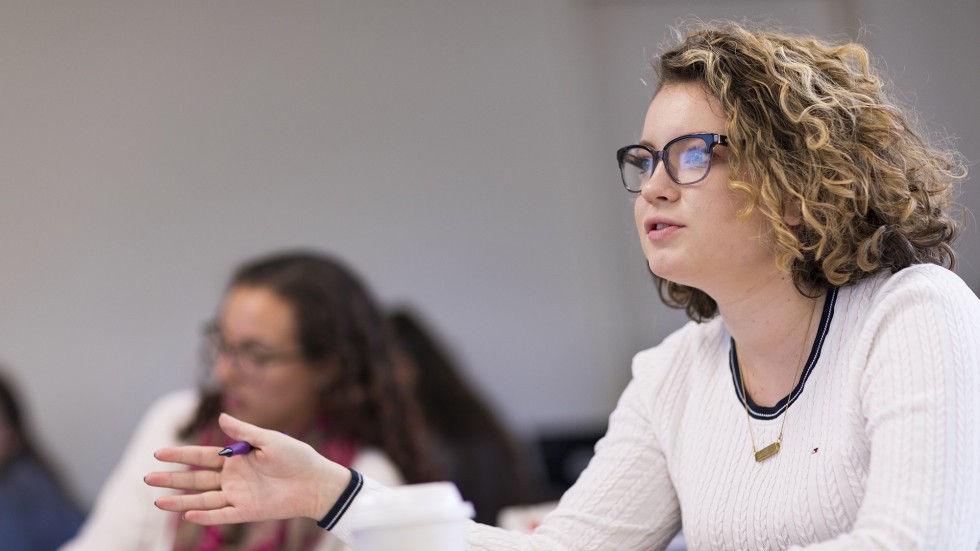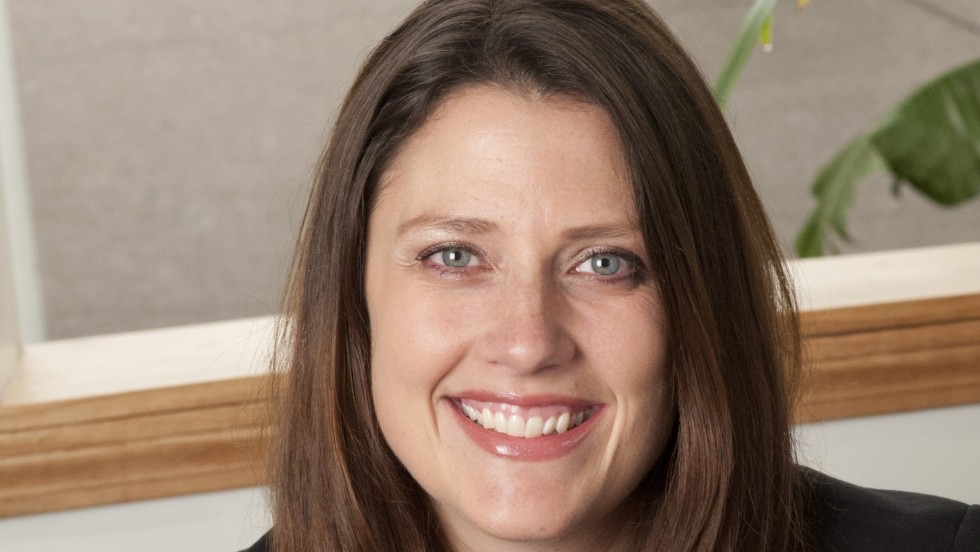Register for a Graduate Teacher Education Course
Our non-degree option gives you the unique opportunity to take up to two graduate-level courses before applying for admission.
Educators can also earn 67.5 professional development points (PDPs) for taking a single graduate course.

Advance Your Professional Development
Are you interested in Stonehill’s graduate teacher education programs but not sure you’re ready for an advanced degree?
Our non-degree option gives you the unique opportunity to take up to two graduate-level courses this spring to get to know Stonehill before formally applying to a degree program. Credits earned count toward your degree if you decide to matriculate in the program. Educators can also earn 67.5 PDPs for completing a single graduate course.
Whether you're seeking a teaching license or master's degree, or you wish to advance your professional development with a single course, Stonehill can help you reach your goals.
5 Reasons to Take a Course This Spring
- Immediately start working toward your career goals
Why wait to advance your career? A spring course at Stonehill College helps you gain valuable knowledge and skills to qualify for promotions, switch industries or build expertise in your current role. - Earn 67.5 PDPs
PDPs are essential for educators and professionals maintaining certifications or fulfilling continuing education requirements. Completing a course at Stonehill this spring earns you 67.5 PDPs to support your career growth. - Online and hybrid options
We understand that life is busy. That’s why Stonehill offers online and hybrid courses, allowing you to learn from anywhere while balancing personal and professional commitments. - Flexible course schedule meets the needs of working professionals
Whether you work full time, have family responsibilities or need a more convenient learning experience, spring courses at Stonehill College offer flexible scheduling options to fit your lifestyle. - Apply credits earned to a degree or certificate
Make the most of your spring by earning credits at Stonehill that apply toward a degree or professional certificate, moving you one step closer to your academic and professional goals.
Spring 2026 Online Course Offerings
This course explores supportive, preventative, and proactive approaches to addressing the social and academic behaviors of students with disabilities and other diverse populations. Strategies for developing a positive classroom climate to support social and emotional development, including trauma and anxiety, will be central to the learning of the course. A variety of approaches, including the connection between communication & behavior, identifying contributing factors to challenging behavior, FBA, and behavior support plans will be explored.
This course runs March 16–May 3 on Wednesdays from 4:30–8 p.m.
This course focuses on race, religion, culture, and language through the lens of social justice education. This course will unpack bias and explore the diverse ways in which power and traditional structures intersect with different cultural, social, and religious practices. We will examine strategies for designing and creating safety in classrooms, schools, educational spaces, and communities which honor students’ cultural backgrounds and lived experiences. The course will explicitly examine privilege, equity, and cultural responsiveness in educational spaces.
This course runs March 16–May 3 on Thursdays from 4:30–8 p.m.
This course explores quality of life considerations, measures, and supports for autistic students/persons. Educators will learn techniques to support autistic students moving from school to adult life, including developing self-advocacy skills, educator advocacy/allyship, family advocacy, person-centered planning, and transition plans. Ethical issues and philosophical challenges relating to sociocultural context, theories, and positioning, anti-oppressive education, and involvement/lack of involvement of self-advocates' perspectives will be explored in the development of pathways to higher education, career and technical education, employment, and independent living.
This course runs March 16–May 3 on Thursdays from 4–7:30 p.m.
Spring 2026 Course Offerings in Boston
This graduate course focuses on the Individual Education Program (IEP) and the role of the special educator in the process, from pre-referral to eligibility determination and placement, as well as implementation. Federal and state laws related to special education will be explored. Collaboration, communication, building trust, and relationships with families and school/community colleagues will be an emphasis of the course.
This course runs March 16–May 3 and meets in-person in Boston on March 21 & 22 and April 18 & 19 from 8 a.m.–5 p.m.
Spring 2026 Course Offerings on Cape Cod
This graduate course focuses on the Individual Education Program (IEP) and the role of the special educator in the process, from pre-referral to eligibility determination and placement, as well as implementation. Federal and state laws related to special education will be explored. Collaboration, communication, building trust, and relationships with families and school/community colleagues will be an emphasis of the course.
This course runs March 16–May 3 and meets in-person on Cape Cod on March 28 & 29 and May 2 & 3 from 8 a.m.–5 p.m.
Graduate Teacher Education Tuition and Fees
Tuition and fees for the graduate teacher education programs are calculated on a per-credit basis. Additional fees may apply.
| Tuition | Rate Per Credit |
|---|---|
| Cost per credit hour | $787 |
| Skyhawk Rate (Applicable to alumni, employees and approved partners) |
$629 |
| MTEL Prep Course Tuition | Course Fee |
|---|---|
| Course fee for MTEL Prep Course | $350 |
Meet the Director
Contact us with any questions.
Graduate & Professional Studies Admission assists students as they explore graduate and professional opportunities offered at Stonehill College.
